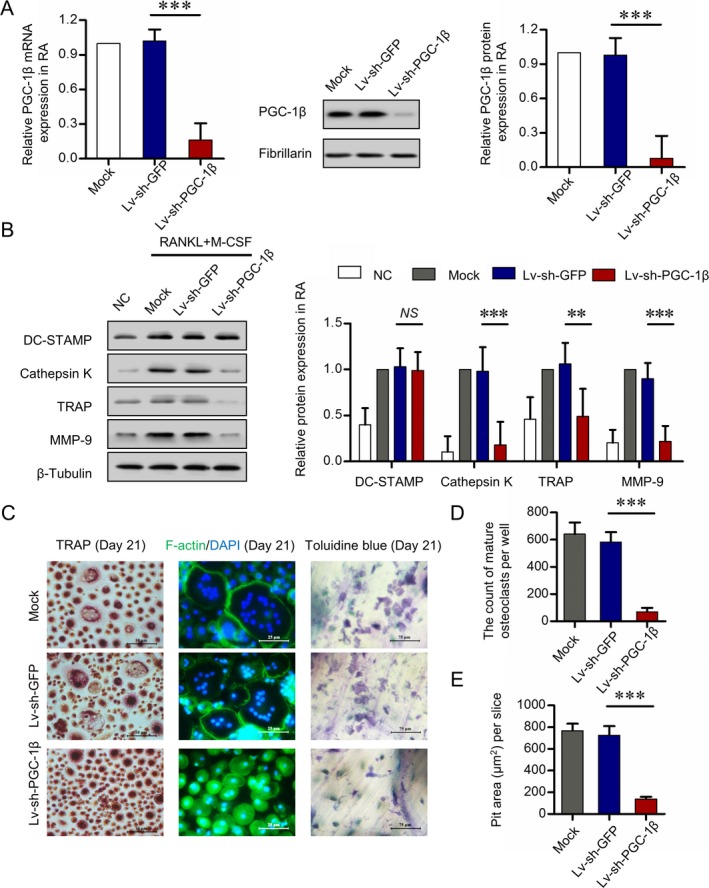Figure 3.

Suppression of osteoclastogenesis with inhibition of PGC‐1β. PB CD14+ monocytes from RA patients were transfected with short hairpin RNA expression lentivirus for PGC‐1β knockdown (lv‐sh‐PGC‐1β) or with empty vector expressing green fluorescent protein (lv‐sh‐GFP) as control. A, Efficiency of PGC‐1β knockdown in PB CD14+ monocytes by lentivirus transfection, detected by quantitative polymerase chain reaction (left and right) and Western blot analysis (middle). B, Expression of DC‐STAMP, cathepsin K, tartrate‐resistant acid phosphatase (TRAP), and matrix metalloproteinase 9 (MMP‐9) following stable knockdown of PGC‐1β in PB CD14+ monocytes for 21 days, assessed by Western blot analysis. The band intensities of DC‐STAMP, cathepsin K, TRAP, and MMP‐9 were normalized to the values for β‐tubulin (left) and compared by Student's t‐test (right). C, PB CD14+ monocytes transfected with lv‐sh‐GFP or lv‐sh‐PGC‐1β and cultured with RANKL and macrophage colony‐stimulating factor (M‐CSF). Mature osteoclasts were detected by TRAP staining (original magnification × 40) on day 21 and fluorescein isothiocyanate–phalloidin staining (original magnification × 100) on day 21. Bone resorption activity of osteoclasts was detected by toluidine blue staining (original magnification × 400) on day 21. D and E, Cell counts of mature osteoclasts (D) and pit area of bone resorption lacunae (E) on day 21. Representative results using samples from 6 RA patients are shown. Data were summarized from 3 independent experiments. Bars show the mean ± SD. ** = P < 0.01; *** = P < 0.001, by Student's t‐test. NC = negative control; NS = not significant (see Figure 1 for other definitions). Color figure can be viewed in the online issue, which is available at http://onlinelibrary.wiley.com/doi/10.1002/art.40868/abstract.
